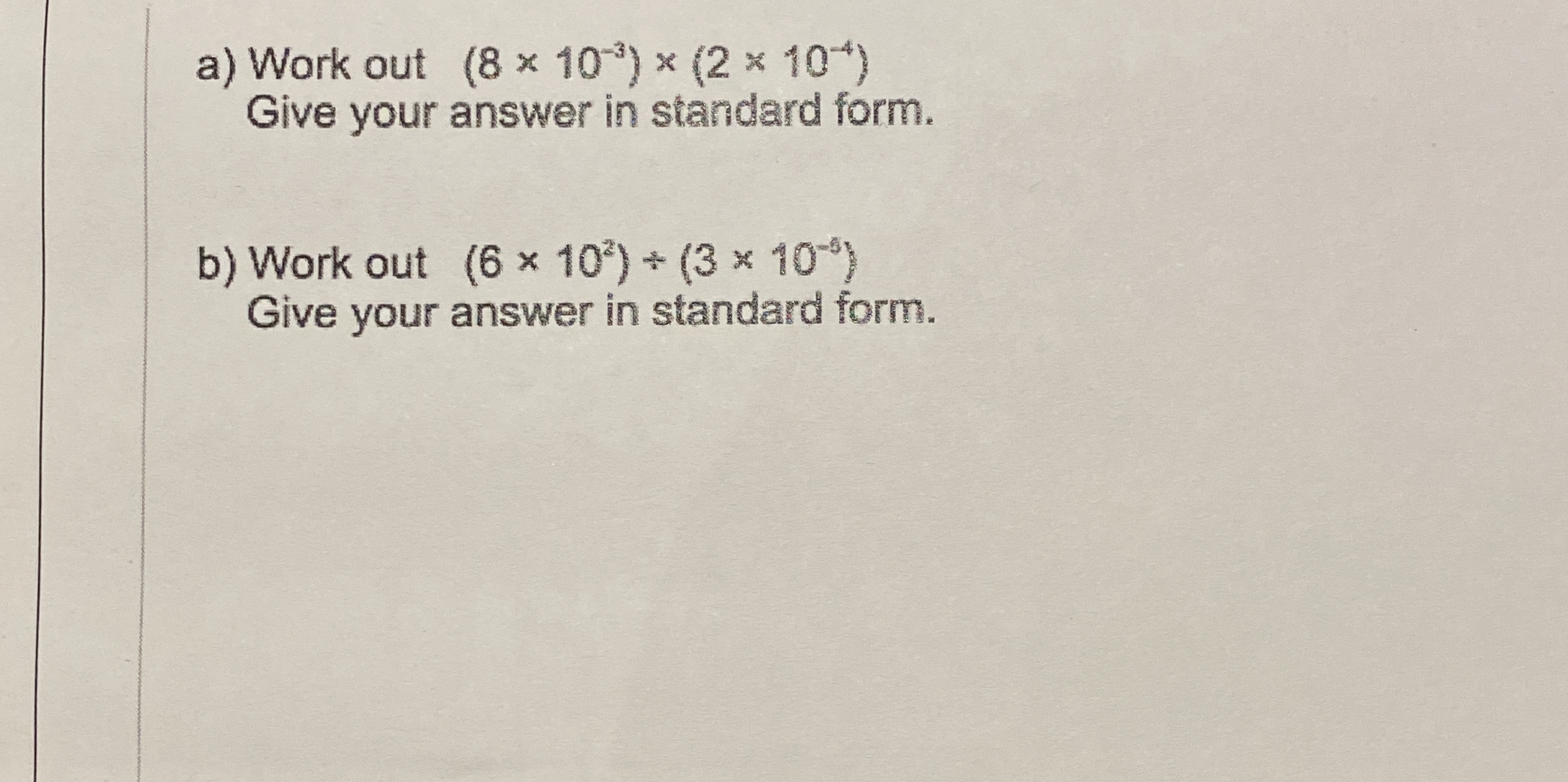a) Work out (8 × 10^(-3)) × (2 × 10^(-1)). Give your answer in standard form. b) Work out (6 × 10^(2)) + (3 × 10^(-5)). Give your answer in standard form.

Understand the Problem
The question requires calculation involving numbers in scientific notation. It asks for the results of two operations to be provided in standard form.
Answer
a) $1.6 \times 10^{-3}$; b) $6.00003 \times 10^{2}$
Answer for screen readers
a) $1.6 \times 10^{-3}$
b) $6.00003 \times 10^{2}$
Steps to Solve
-
Calculate the First Expression (a)
Start with the expression $(8 \times 10^{-3}) \times (2 \times 10^{-1})$.
We multiply the coefficients and add the exponents:
$$ = (8 \times 2) \times 10^{-3 + -1} $$
$$ = 16 \times 10^{-4} $$
Convert to standard form:
$$ = 1.6 \times 10^{-3} $$
-
Calculate the Second Expression (b)
Now, move to the expression $(6 \times 10^{2}) + (3 \times 10^{-5})$.
Convert the first term to a similar power of ten as the second:
$$ = (6 \times 10^{2}) = (6 \times 10^{2}) + (0.00003 \times 10^{2}) $$
This gives us:
$$ = 6 \times 10^{2} + 0.00003 \times 10^{2} $$
Now, add the coefficients:
$$ = (6 + 0.00003) \times 10^{2} $$
$$ = 6.00003 \times 10^{2} $$
-
Final Form for (b)
Since $6.00003 \times 10^{2}$ is already in standard form, it remains as:
$$ = 6.00003 \times 10^{2} $$
a) $1.6 \times 10^{-3}$
b) $6.00003 \times 10^{2}$
More Information
These calculations involve the rules of operations with scientific notation. In part (a), you multiply the coefficients and add the exponents. In part (b), since you’re adding, you must express the numbers with the same exponent.
Tips
- Forgetting to add the exponents when multiplying.
- Not converting numbers to the same power of ten before adding.
AI-generated content may contain errors. Please verify critical information